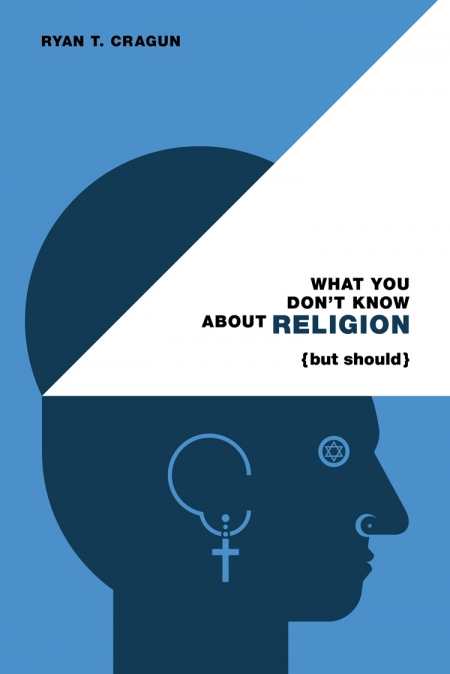What You Don't Know about Religion (but Should)
Blunt exploration destroys myths about nonbelievers, yet lacks nuance in painting picture of the religious.
Against the classic promises of evangelists stands sociologist of religion Ryan T. Cragun’s (Could I Vote for a Mormon President? 2012) new book, a work that systematically examines, and dismantles, the notion that religious folks are either better, or happier, people than their skeptical neighbors.
Cragun’s chapters employ both data and anecdotes to show that the ways we’re taught to think about religious and nonreligious people are reliant upon polarizing myths about both. As latter portions of the book illustrate, little daylight actually exists between believers and nonbelievers when it comes to values, including moral discernment, commission of crimes, charitable giving, and personal happiness. All are areas in which the religious purport greater success, yet Cragun shows that particular religious allegiances neither prevent people from doing bad things nor guarantee that they’ll do outwardly beneficial ones. Indeed, when it comes to benevolent acts toward others—as with charitable giving—nonbelievers may even claim a slight edge.
Coupled with the book’s early chapters, which paint a dismal picture for the religious in areas ranging from achievement to choice, Cragun’s book makes convincing arguments against regarding religion as either innately beneficial or benign. As he shows, traditionally religious people tend to be less educated, to marry earlier, to make less money, and to promote notions anathema to progressive societies and social well-being, from misogyny to homophobia. Since, from Cragun’s perspective, atheism is humanity’s natural inclination, and belief is something which must be inculcated, the religious are encouraged either to see that dogmatism is detrimental and liberalize, or to—as Cragun did—abandon religious allegiances altogether.
The conclusions that Cragun draws from his collected data are not always strictly empirical, despite his admirable commitments to both science and reason. Some claims—such as that religions avoid ordaining women as a recruitment tactic to appeal to conservative misogynists, or that religious leaders encourage marriage and procreation within the tradition to guarantee a continual “flock to fleece”—are glaring in their lack of nuance.
Further, while his shared data does show marked differences between nonbelievers and religious traditionalists in significant areas, the differentiations are infrequently jarring, particularly for those who never believed believers to be angels and nonbelievers miscreants. Late language—“fundamentalism must die so that humanity can live,” “we nonreligious will inherit the earth, but we won’t share it with fundamentalists”—can be downright alienating, and does not seem borne out by the data provided. This is unfortunate, since Cragun hopes to persuade traditionalists out of their arrogance and toward progressive thought, religious or not.
Nevertheless, the bulk of this project is intelligently laid out. Its data are neatly and compellingly arranged, and the stories shared render Cragun’s points empathetic and ensure wide reader appeal. The author’s strongly voiced frustrations tend to be just, and his praise for liberal religious practice, if sometimes faint, makes the project ecumenically advantageous. The book is an erudite and often blunt exploration, both biting and exigent.
Reviewed by
Michelle Anne Schingler
Disclosure: This article is not an endorsement, but a review. The publisher of this book provided free copies of the book and paid a small fee to have their book reviewed by a professional reviewer. Foreword Reviews and Clarion Reviews make no guarantee that the publisher will receive a positive review. Foreword Magazine, Inc. is disclosing this in accordance with the Federal Trade Commission’s 16 CFR, Part 255.

